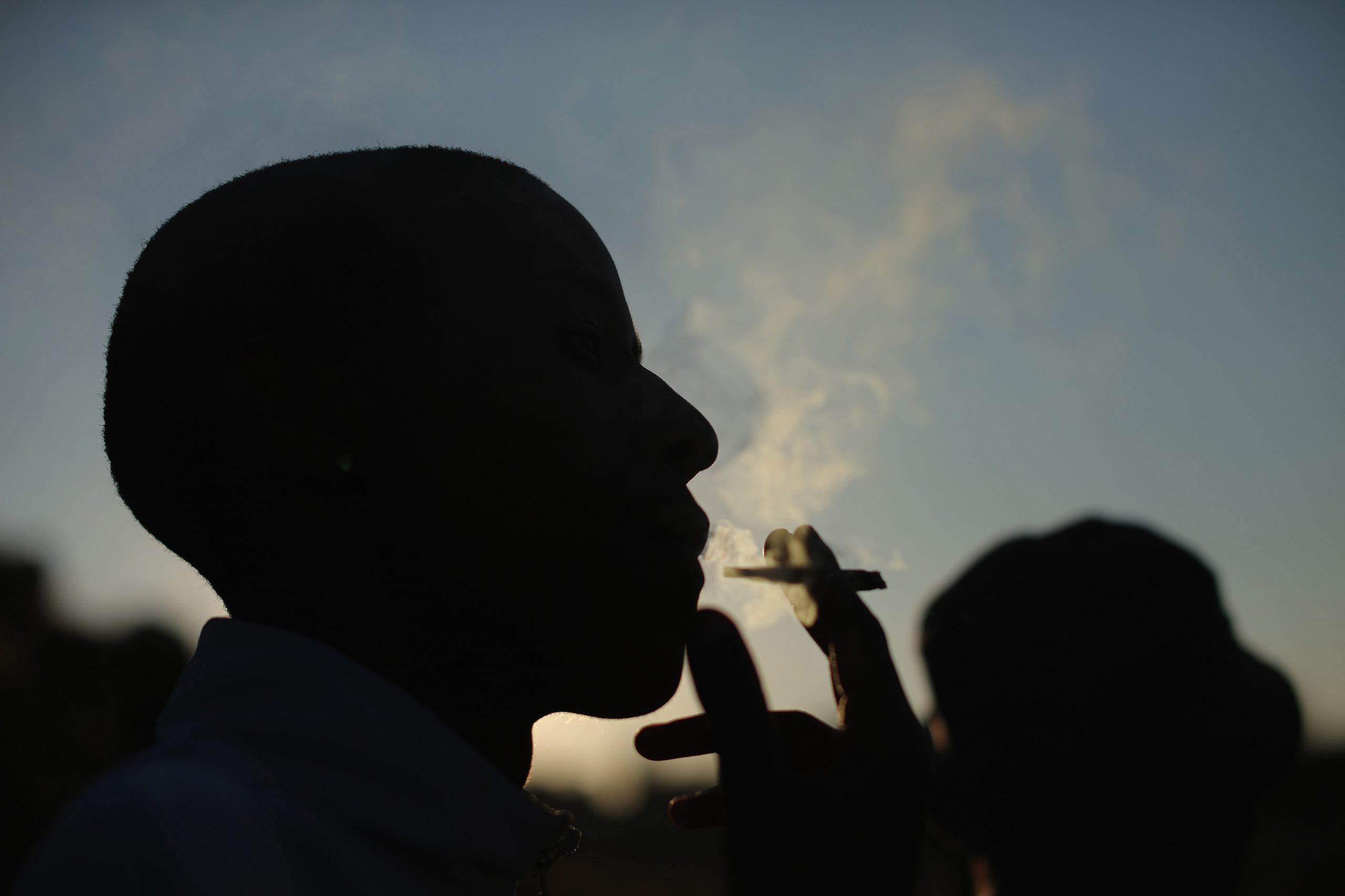Puff, puff, pass
Constitutional Court judgment warmly received as South Africa inches closer to the decriminalisation of cannabis.
Author:
20 September 2018

The unanimous Constitutional Court judgment by Deputy Chief Justice Raymond Zondo that it is no longer a criminal offence for an adult to use or be in possession of cannabis in their home for personal use has been hailed as the beginning of decolonisation of the law.
But those who were arrested and charged for the possession of cannabis before the ruling was handed down will not benefit from the ruling.
Leon Nel lives in Western Cape. He has used cannabis for the past 20 years. He was released on warning after “police arrested [him] for a small stock of cannabis [he] could not even roll a joint with”. When he was arrested, he “lost [his] job because [he] missed work for two days”.
“I was in a cell with 15 people sleeping on the floor, it was terrifying,’’ said Nel. He said he believed the judgment should apply retrospectively.
Historian Craig Paterson agreed. According to Paterson, “if this is ruled unconstitutional, it does not mean it’s unconstitutional now – it has always been unconstitutional”. From 1996, when the Constitution came into law, people who have been charged with this crime should be pardoned because their arrests are unconstitutional, said Paterson.
Zondo did not specify the maximum quantity allowed for personal use, as that is up to Parliament to decide.
Colonial criminalisation
The matter came from three different proceedings instituted in the Western Cape High Court, which were consolidated and heard as one matter as the court felt all three cases were premised on the same cause of action – that certain sections of Drugs Act and the Medicines Act were constitutionally invalid.
Judge Dennis Davis, in a unanimous decision, declared four sections of the Drugs Act unconstitutional as it unjustifiably limited the right to privacy of an adult person to use, possess and cultivate cannabis in the privacy of his or her home. The court noted that the history of cannabis use in this country “is replete with racism”, a sentiment echoed by Zondo.
Paterson said: “The reason this is such an important issue isn’t about the plant being illegal and whether it’s safe or not. What really is important … is when you look into the history of this plant, you are actually looking at the depth that colonial ideology and legal culture penetrated the South African legal system and legal culture.
“When we are talking about the decolonisation of South African law, we think about the obvious things. We see a law is racist, we scrap that law – the Group Areas Act … but what we don’t realise, is that apartheid ideology penetrated every aspect of the law. The theoretical foundations that gave rise to apartheid … are exactly the same theoretical foundations that were used to make cannabis illegal,” he said.
“What is so important about this case is that we are finally starting to ask important questions and highlight issues about what it means to decolonise our legal system and decolonise the law, because [the judgment] highlights how deep that colonisation goes,” said Paterson.
Personal, not just home, use
Whereas the high court ruling confined the use of cannabis to a private home, the most radical aspect of the Constitutional Court judgment related to the broadening of private use or possession.
Garreth Prince, one of the applicants in the matter, began his fight against the criminalisation of cannabis more than two decades ago. Prince, widely known as the “Rastafarian lawyer”, argued that cannabis being criminalised was inconsistent with his constitutional right to freedom of religion.
He and others who joined the application argued that the right to privacy extends beyond the boundaries of a home, and that legal possession being limited to private homes left people carrying cannabis vulnerable to continued arbitrary prosecution.
Taking this into account, Zondo dispensed with the order of high court, saying “there was no persuasive reason the high court confined its declaration of invalidity to the use, possession or cultivation of cannabis at a home or in a private dwelling”. He was constantly disturbed by clapping coming from the gallery.
He reasoned that “as long as the use or possession of cannabis is in private and not in public, and the use or possession of cannabis is for the personal consumption of an adult, it is protected” by section 14 of our Constitution.
